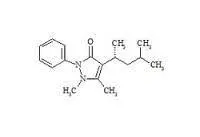- Afrikaans
- Albanian
- Amharic
- Arabic
- Armenian
- Azerbaijani
- Basque
- Belarusian
- Bengali
- Bosnian
- Bulgarian
- Catalan
- Cebuano
- Corsican
- Croatian
- Czech
- Danish
- Dutch
- English
- Esperanto
- Estonian
- Finnish
- French
- Frisian
- Galician
- Georgian
- German
- Greek
- Gujarati
- Haitian Creole
- hausa
- hawaiian
- Hebrew
- Hindi
- Miao
- Hungarian
- Icelandic
- igbo
- Indonesian
- irish
- Italian
- Japanese
- Javanese
- Kannada
- kazakh
- Khmer
- Rwandese
- Korean
- Kurdish
- Kyrgyz
- Lao
- Latin
- Latvian
- Lithuanian
- Luxembourgish
- Macedonian
- Malgashi
- Malay
- Malayalam
- Maltese
- Maori
- Marathi
- Mongolian
- Myanmar
- Nepali
- Norwegian
- Norwegian
- Occitan
- Pashto
- Persian
- Polish
- Portuguese
- Punjabi
- Romanian
- Russian
- Samoan
- Scottish Gaelic
- Serbian
- Sesotho
- Shona
- Sindhi
- Sinhala
- Slovak
- Slovenian
- Somali
- Spanish
- Sundanese
- Swahili
- Swedish
- Tagalog
- Tajik
- Tamil
- Tatar
- Telugu
- Thai
- Turkish
- Turkmen
- Ukrainian
- Urdu
- Uighur
- Uzbek
- Vietnamese
- Welsh
- Bantu
- Yiddish
- Yoruba
- Zulu
Dec . 01, 2024 16:29 Back to list
antiparasitic drugs for humans
Antiparasitic Drugs for Humans An Overview
Parasitic infections pose significant health challenges across the globe, particularly in low- and middle-income countries. These infections can lead to morbidity and mortality and often disproportionately affect vulnerable populations. Antiparasitic drugs play a crucial role in preventing, controlling, and treating these infections. Understanding the various types of antiparasitic medications available and their mechanisms of action can empower healthcare providers and patients alike in combating these pervasive health threats.
Types of Parasitic Infections
Parasitic infections are typically categorized into two main groups protozoa and helminths. Protozoal infections are caused by single-celled organisms, while helminthic infections involve multicellular organisms, commonly known as worms. Some of the most prevalent parasitic diseases include malaria (caused by Plasmodium spp.), schistosomiasis (caused by Schistosoma spp.), leishmaniasis (caused by Leishmania spp.), and intestinal helminthiases such as ascariasis and hookworm disease.
Mechanisms of Antiparasitic Drugs
Antiparasitic drugs work through various mechanisms to either kill parasites or inhibit their growth. These mechanisms can be broadly divided into the following categories
1. Inhibition of Nucleic Acid Synthesis Drugs such as chloroquine and metronidazole are designed to interfere with the DNA and RNA synthesis in protozoa, thereby staving off their reproduction and causing cell death.
2. Disruption of Energy Metabolism Some antiparasitic medications, like atovaquone, disrupt the electron transport chain in parasites, consequently affecting their energy production, which is vital for their survival.
3. Neuromuscular Blockade Anthelmintics such as praziquantel function by causing paralysis of the worm's muscles, ultimately leading to its expulsion from the host’s body.
Common Antiparasitic Drugs
antiparasitic drugs for humans

Several antiparasitic drugs are widely used across the globe, including
- Chloroquine A cornerstone in the treatment of malaria, chloroquine works by preventing the parasite’s metabolism of hemoglobin, leading to a buildup of toxic heme.
- Metronidazole Commonly utilized for intestinal and systemic protozoal infections, metronidazole is effective against organisms such as Giardia lamblia and Entamoeba histolytica.
- Ivermectin Initially developed for veterinary use, ivermectin is now a key medication for treating strongyloidiasis and onchocerciasis in humans.
- Praziquantel This is the drug of choice for treating schistosomiasis and certain liver fluke infections. Its broad spectrum of activity against various trematodes and cestodes makes it invaluable.
Challenges and Resistance
Despite the efficacy of antiparasitic drugs, challenges remain, including the rise of drug resistance, limited access to medications, and the side effects associated with some treatments. Resistance, particularly in malaria, has posed a significant threat to global health initiatives. Strategies to combat resistance include combination therapies, which utilize multiple drugs to reduce the likelihood of a parasite developing resistance to any one treatment.
Additionally, access to these essential medications is often compromised in low-income regions, where parasitic diseases are most prevalent. Efforts by organizations like the World Health Organization (WHO) aim to improve drug accessibility and foster research into safe, effective treatments.
Conclusion
Antiparasitic drugs are essential tools in the fight against parasitic infections that affect millions worldwide. By understanding their mechanisms, common medications, and challenges such as drug resistance, healthcare professionals can better allocate resources and develop effective treatment protocols. Continued investment in research and public health initiatives is crucial to mitigate the impact of these diseases and to promote equitable access to antiparasitic treatments for all populations.
-
Guide to Oxytetracycline Injection
NewsMar.27,2025
-
Guide to Colistin Sulphate
NewsMar.27,2025
-
Gentamicin Sulfate: Uses, Price, And Key Information
NewsMar.27,2025
-
Enrofloxacin Injection: Uses, Price, And Supplier Information
NewsMar.27,2025
-
Dexamethasone Sodium Phosphate Injection: Uses, Price, And Key Information
NewsMar.27,2025
-
Albendazole Tablet: Uses, Dosage, Cost, And Key Information
NewsMar.27,2025













